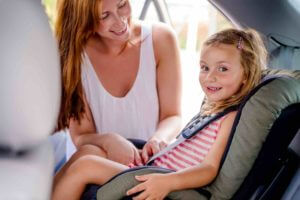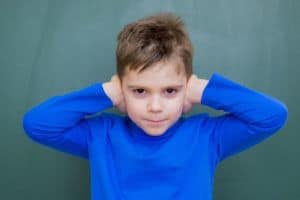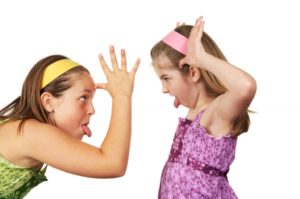According to Jan-Uve-Rogge, parents put themselves under too much pressure. It’s more important to have a good sense of humor than to stay in control. It is also easier to bring up children, says Rogge, if you take a more relaxed approach. In addition, he emphasizes that dividing the parenting work between husband and wife also has a relieving effect.
Table of contents
Too Much Control
Parents today want to know and monitor everything. In a household with one or two children, this is much easier than in the extended families of earlier days. But history shows: Even or especially children from large families survive and learn to go through life independently.
- Also Interesting:
- The 5 Best Kubb Games (“Viking chess”)
- Recommended Kidkraft Kitchens For Children
- The 8 Best Wooden Swings For Children
Rogge comments that parents try too hard to keep control. But that would limit the development of children. According to Rogge, the permanent monitoring could even lead to children becoming depressed. Many parents appear to their children as if they hardly trust them to do anything. They approach new situations with an anxious tone of voice. Children of such overly caring parents are often unhappy later on. They suffer from anxiety and depressive moods. This conclusion is quite understandable: If the child has never been shown trust or confidence, he will hardly be able to trust himself. Children who grow up under such circumstances develop little autonomy and generally lag behind somewhat in development. After all, parents take on a great many tasks, so children rarely get the opportunity to master a challenge. But it is precisely this challenge that is needed in order to learn new things. In addition, the lack of confidence in the parent-child relationship affects the children’s well-being. So it’s only understandable that they later cope with stress more poorly than they should.
Commitment Does Not Equal Control
Parental care is important and necessary. Father and mother should take an interest in the child’s environment and actively participate in it. Excessive control, on the other hand, has an extremely negative effect. The degree of control should be adapted to the age of the children. The older the child, the freer he or she must be able to move.
Allow Failures
Parents make mistakes just like their charges. It is also true that most children have their deficits. Education cannot always succeed. Depending on the mood of the day, consistency and loving interaction do not always work equally well. Parents should be aware on less good days that they are only human. They have to remind themselves again and again that the (child’s) world does not come apart at the seams if they take a step back. Jan-Uwe Rogge therefore does not accuse parents of having made educational mistakes. On the contrary, he emphasizes that education has to be fun and that parents cannot give 100% of their energy every day.
No Recipes
Jan-Uwe Rogge’s parenting tips are not to be understood as recipes. Rather, his books and lectures are peppered with humorous remarks. With his relaxed manner, he holds up a mirror to parents and encourages them to reflect. At the same time, his stories give them the feeling that they are not alone. After all, all parents experience similar situations with their children, which can sometimes be a real test of nerves. According to Rogge, there is no such thing as “pedagogical enlightenment”. Education is the accompaniment of the child, not just “raising” him or her. And this accompaniment is something very individual.
Education Begins With The Parents
Pedagogy and educational science are mostly concerned with how best to deal with children. This ignores the fact that it is the parents themselves who determine whether education can succeed. First and foremost, they should understand that they are not to blame for this or that failure. For them, too, education is a constant process of learning and development.
You Are The Child
According to Rogge, in child rearing it is always necessary to consider the following: On the one hand, you want to raise a child. On the other hand, every parent also has a child within him or herself. Everyone must deal with this inner child himself. This would then be an essential step in the right direction. By the way, one of Rogge’s tips is not to underestimate laughing together. You should be able to laugh with your own children several times a day. Then parents and children would be equally well off. Here he takes the following saying by Pestalozzi as a basis: “Laugh three times a day with your child, then you will be fine. Once about yourself, once about your child, and once together with your child.”
Criticism of Jan Uwe-Rogge
Mr. Rogge, like any person of public interest, is naturally also subject to criticism. Thus one chalks him among other things the following points.
- No concrete advice.
- No analysis of certain educational situations.
- No corresponding tips for sensible alternative courses of action.
- He influences the readers emotionally by telling them about well-known problems.
- Lack of pedagogical argumentation.
- Only main message: moral exoneration of parents.
It is undisputed that this criticism is true. On the other hand, as mentioned earlier, it is probably not Rogge’s intention to provide parents with ready-made educational recipes. To a certain extent, each parent should take responsibility for himself or herself, without relying on what this or that educator says. If you take a more relaxed approach to parenting and accept your own inner child, you are more likely to be able to react flexibly to certain parenting situations.












